Back from the Brink of Suicide
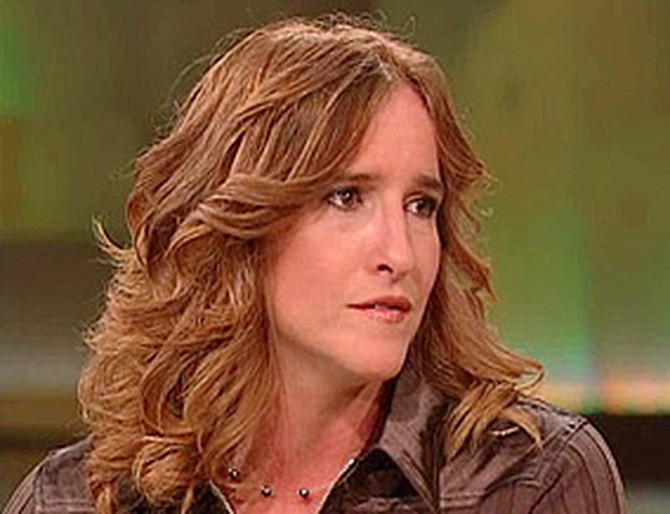
According to the Centers for Disease Control, more than 31,000 men, women and children take their own lives every year in the United States—and Wisconsin resident Tina Zahn almost became one of them in 2004.
On the outside, Tina appeared to be like many other women. She was a devoted wife and mother of two. She also volunteered at school and church in addition to working full-time. Privately, Tina was also struggling with postpartum depression. One day, she says something inside her snapped. She grabbed her car keys, tore out of the driveway and sped down the highway with only one thought on her mind—plunging off a 200-foot bridge.
On the outside, Tina appeared to be like many other women. She was a devoted wife and mother of two. She also volunteered at school and church in addition to working full-time. Privately, Tina was also struggling with postpartum depression. One day, she says something inside her snapped. She grabbed her car keys, tore out of the driveway and sped down the highway with only one thought on her mind—plunging off a 200-foot bridge.

Twenty minutes before Tina jumped, her husband Dan received a call from his mother-in-law saying that Tina had taken off. Dan called 911 as he went to look for her—and his intuition told him exactly where she was going. "She's headed for Tower Drive Bridge," he told the 911 operator. "Get someone there."
That someone happened to be State Trooper Les Boldt, who was nearby and saw Tina passing cars on the shoulder at a high speed. Two more officers, Bill Morgan and Kevin Kinnard, joined the pursuit.
The intense 125-mile-per-hour chase came to an end at the Leo Frigo Memorial Bridge (formerly known as the Tower Drive bridge). Trooper Boldt was right behind Tina. "She gets out of her car, faces my direction, she just turns, closes her door, and walks away from me like I wasn't even there," Officer Boldt says. "At that point, I decided that I was gonna try to beat her to the edge of the bridge. I got to her just as she was trying to get up on top of the cement and then she tumbled over the top."
Trooper Boldt managed to hold on to her. Officers Morgan and Kinnard arrived seconds later to help pull Tina, who was fighting and scratching the men, back to safety.
Tina says she didn't remember anything about the incident until months later. "Now, when I look back, the feeling is of unbelief," Tina says. "Unbelief that I had even done it at all."
That someone happened to be State Trooper Les Boldt, who was nearby and saw Tina passing cars on the shoulder at a high speed. Two more officers, Bill Morgan and Kevin Kinnard, joined the pursuit.
The intense 125-mile-per-hour chase came to an end at the Leo Frigo Memorial Bridge (formerly known as the Tower Drive bridge). Trooper Boldt was right behind Tina. "She gets out of her car, faces my direction, she just turns, closes her door, and walks away from me like I wasn't even there," Officer Boldt says. "At that point, I decided that I was gonna try to beat her to the edge of the bridge. I got to her just as she was trying to get up on top of the cement and then she tumbled over the top."
Trooper Boldt managed to hold on to her. Officers Morgan and Kinnard arrived seconds later to help pull Tina, who was fighting and scratching the men, back to safety.
Tina says she didn't remember anything about the incident until months later. "Now, when I look back, the feeling is of unbelief," Tina says. "Unbelief that I had even done it at all."

Tina was battling postpartum depression when she attempted to commit suicide, but she says her struggle with depression began when she was bedridden during the pregnancy. Friends started doing her shopping and cleaning for her, which made her feel worse. "It was hard for me because I was prideful at the time," Tina says.
On top of that, Tina says she was always a "people pleaser" and would try to be perfect at everything. She also says she felt rejected due to past sexual abuse and some rocky family relationships. "Deep down inside, I felt alone," she says. "I felt empty. I felt I was in this deep, black hole."
Tina's husband says he didn't initially understand how depressed she was. "Then I started to see signs as we got closer to Noah's birth and right after that," Dan says.
He noticed she avoided people and stayed secluded, but Dan says he never thought Tina would try to kill herself. "It never got to the point where I understood she would do that," Dan says. "I heard her mention it, and I guess not ever dealing with depression before in your life, you really don't know what to look for."
On top of that, Tina says she was always a "people pleaser" and would try to be perfect at everything. She also says she felt rejected due to past sexual abuse and some rocky family relationships. "Deep down inside, I felt alone," she says. "I felt empty. I felt I was in this deep, black hole."
Tina's husband says he didn't initially understand how depressed she was. "Then I started to see signs as we got closer to Noah's birth and right after that," Dan says.
He noticed she avoided people and stayed secluded, but Dan says he never thought Tina would try to kill herself. "It never got to the point where I understood she would do that," Dan says. "I heard her mention it, and I guess not ever dealing with depression before in your life, you really don't know what to look for."

Today, Tina says she's grateful to be alive. She continues to control her depression through medication and says her support system helps her work through struggles. "Because before I was stuffing everything and trying to push it down, push all the pain down, repress everything," Tina says.
For the first time on Oprah's stage, Tina says thank you to the officers who saved her life. Her husband, Dan, also stands up and embraces Officer Boldt.
"I think that's so great that you wanted to hug him," Oprah says to Dan. "What did you say to him?"
"I said, 'Thank you so much,'" Dan says. "I talked to him once right after the jump, and I told you [Officer Boldt] you were my hero and that someday we'd meet, and I sure am glad we got this opportunity to do so. Thank you."
For the first time on Oprah's stage, Tina says thank you to the officers who saved her life. Her husband, Dan, also stands up and embraces Officer Boldt.
"I think that's so great that you wanted to hug him," Oprah says to Dan. "What did you say to him?"
"I said, 'Thank you so much,'" Dan says. "I talked to him once right after the jump, and I told you [Officer Boldt] you were my hero and that someday we'd meet, and I sure am glad we got this opportunity to do so. Thank you."
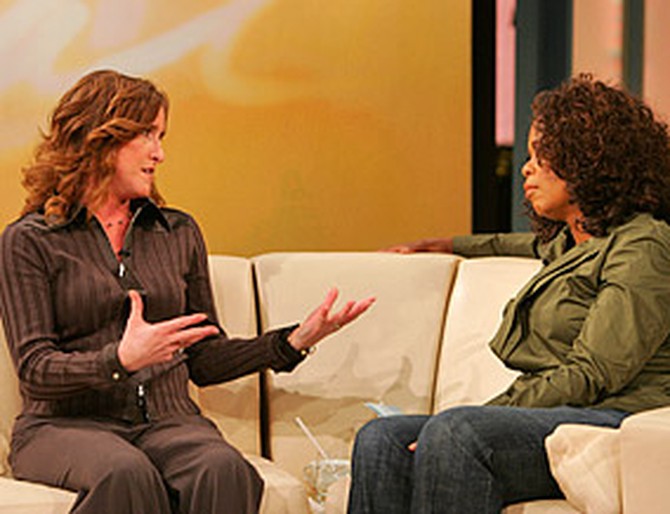
Tina has written a book called Why I Jumped to help others who are in a dark place like she was. She writes, "We don't come back from depression alone, which is why depression can be so difficult. It convinces you that no one cares, that no one understands, and that there is no hope."
Tina has a simple message for anyone who may be contemplating suicide—ask for help.
"There is hope, and this is not the end," she says. "Just pick up the phone, call somebody. Do something."
Tina has a simple message for anyone who may be contemplating suicide—ask for help.
"There is hope, and this is not the end," she says. "Just pick up the phone, call somebody. Do something."
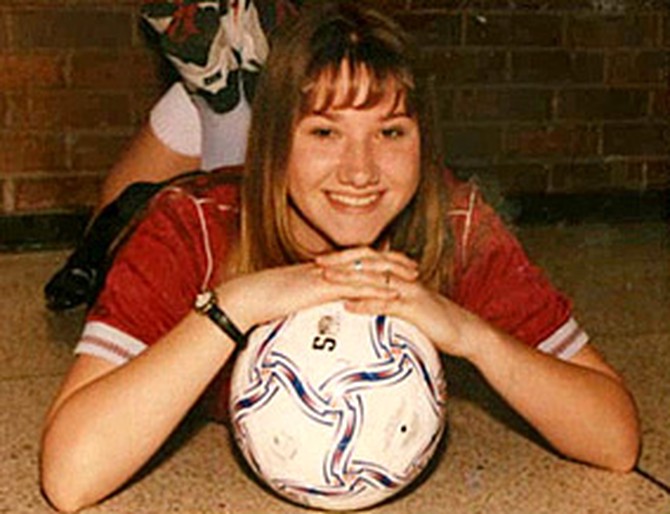
Kristen says that while she was growing up, she had a great family, wasn't plagued with tragedy and wasn't abused as a child. She was smart, athletic and even dated the prom king.
Then at 15, four of her friends and her grandmother died within a year. As she struggled to deal with these deaths, she began drinking, smoking and skipping school. Then, she says, a trusted friend raped her. "I really started to hate myself; I really started to blame myself," Kristen says. "I kind of went numb inside. I felt like I was a walking dead person for six months. I felt like, 'I don't want to live my life. What's the point anymore?'"
Because one of her friends had committed suicide, Kristen says she had entertained thoughts about how she would kill herself. "I really was thinking hypothetically, so I went through a lot of different [methods] in my head and none of them seemed good enough right at that moment," she says. "I live right by the train tracks and a train went by and it just snapped in my mind—'That's one way I would never live through it.'"
Though she was depressed for a year and a half, Kristen says she didn't seriously consider killing herself. Then in a moment of total hopelessness one night, Kristen slipped out of her house to a nearby park. When she heard the sound of an approaching train, she made a decision to end her life. "I was like, 'I'm going to do it because if I don't do it now, I never will,'" she says. "That's when I laid on the tracks."
Then at 15, four of her friends and her grandmother died within a year. As she struggled to deal with these deaths, she began drinking, smoking and skipping school. Then, she says, a trusted friend raped her. "I really started to hate myself; I really started to blame myself," Kristen says. "I kind of went numb inside. I felt like I was a walking dead person for six months. I felt like, 'I don't want to live my life. What's the point anymore?'"
Because one of her friends had committed suicide, Kristen says she had entertained thoughts about how she would kill herself. "I really was thinking hypothetically, so I went through a lot of different [methods] in my head and none of them seemed good enough right at that moment," she says. "I live right by the train tracks and a train went by and it just snapped in my mind—'That's one way I would never live through it.'"
Though she was depressed for a year and a half, Kristen says she didn't seriously consider killing herself. Then in a moment of total hopelessness one night, Kristen slipped out of her house to a nearby park. When she heard the sound of an approaching train, she made a decision to end her life. "I was like, 'I'm going to do it because if I don't do it now, I never will,'" she says. "That's when I laid on the tracks."
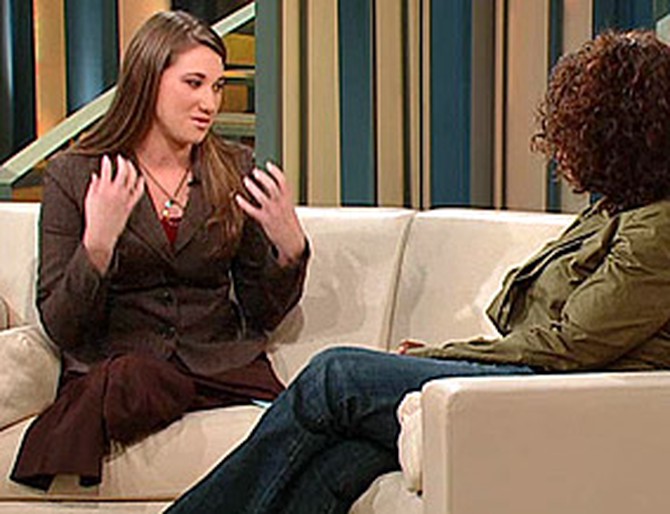
Miraculously, Kristen stayed alive and conscious as 30 freight cars sliced through her body, severing both of her legs. "When the train was going over me, I just felt a lot of weight pushing me down," Kristen says. "I really think that was God holding me down. Normally I would have been sucked up underneath the train because of the physics of when a train goes that fast."
Kristen says she felt some pain initially, but it did not register in her mind. At first she thought she might be dead. Then when she reached down to feel her legs and saw blood, the pain came flooding in.
"After I felt that pain I was crying for my mom, almost like a small child would," Kristen says. "Then the pain totally subsided and I thought I was dying because I started hearing the song 'Amazing Grace' playing over and over and over in my head."
Kristen says she felt some pain initially, but it did not register in her mind. At first she thought she might be dead. Then when she reached down to feel her legs and saw blood, the pain came flooding in.
"After I felt that pain I was crying for my mom, almost like a small child would," Kristen says. "Then the pain totally subsided and I thought I was dying because I started hearing the song 'Amazing Grace' playing over and over and over in my head."

An operator of the train called paramedics, who arrived quickly and saved Kristen's life. "I was absolutely shocked that I lived through it," she says. "I was mad that I lived through it at first. I struggled with depression a lot once I realized my legs were gone because I was kind of vain. I didn't want to live my life in a wheelchair and I didn't want to not have my legs."
While Kristen says she continued to struggle with depression for three years after her dramatic suicide attempt, she has now come to terms with her life with the help of her faith. "It breaks my heart to see kids who feel the way that I felt then," she says. "They're just walking around like there's no point to life. That's one of the reasons that I'm so glad to still be here. I want them to know how special they are. That there's a reason they're here. God created them for purposes."
While Kristen says she continued to struggle with depression for three years after her dramatic suicide attempt, she has now come to terms with her life with the help of her faith. "It breaks my heart to see kids who feel the way that I felt then," she says. "They're just walking around like there's no point to life. That's one of the reasons that I'm so glad to still be here. I want them to know how special they are. That there's a reason they're here. God created them for purposes."

Like Kristen, AJ did not appear to be depressed when he was a child. He was a straight-A student, popular and played on the football team. Behind the smiling face, AJ says he was secretly struggling.
When he was 6, his parents divorced. By the time he was 13, the attempted robbery of a gas station had earned AJ some time in juvenile hall. His grades plummeted. When his mother's second marriage came to a bitter end, AJ's life was in a total tailspin and he began drinking to escape.
Then one night when he was 16 years old, AJ says his stepfather kicked him out of the house. AJ went to a family friend's home where he had been housesitting, walked to their gun case, grabbed a 12-gauge shotgun, went outside, and shot himself in the head, blowing off most of his face.
When he was 6, his parents divorced. By the time he was 13, the attempted robbery of a gas station had earned AJ some time in juvenile hall. His grades plummeted. When his mother's second marriage came to a bitter end, AJ's life was in a total tailspin and he began drinking to escape.
Then one night when he was 16 years old, AJ says his stepfather kicked him out of the house. AJ went to a family friend's home where he had been housesitting, walked to their gun case, grabbed a 12-gauge shotgun, went outside, and shot himself in the head, blowing off most of his face.
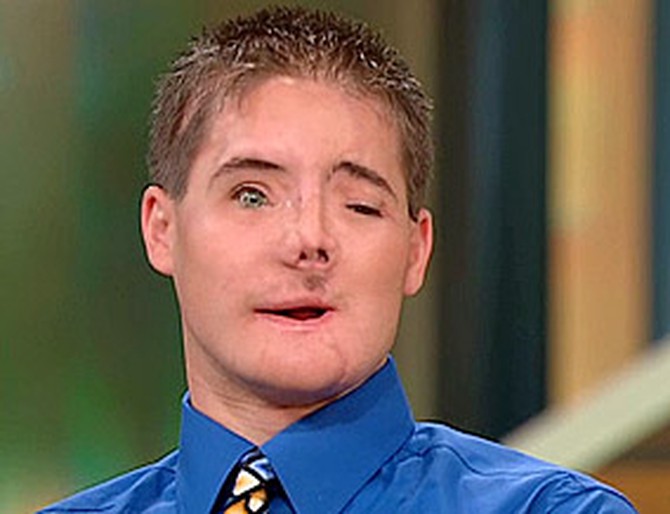
When first responders arrived, they figured that their job at the grisly scene was not to conduct a rescue, but rather to confirm AJ's death. To the rescuers' amazement, AJ was not dead.
At the hospital, AJ was placed in a drug-induced coma to give his body an opportunity to heal. He has since undergone 18 major surgeries in which doctors have taken bone from elsewhere in his body and, he says, "put my face back together."
AJ says he tried to kill himself that day because he was in so much emotional pain. "I didn't want to hurt anymore—I didn't want to deal with life," he says. "I really had a negative attitude at that point in time and it seemed like the only option."
At the hospital, AJ was placed in a drug-induced coma to give his body an opportunity to heal. He has since undergone 18 major surgeries in which doctors have taken bone from elsewhere in his body and, he says, "put my face back together."
AJ says he tried to kill himself that day because he was in so much emotional pain. "I didn't want to hurt anymore—I didn't want to deal with life," he says. "I really had a negative attitude at that point in time and it seemed like the only option."
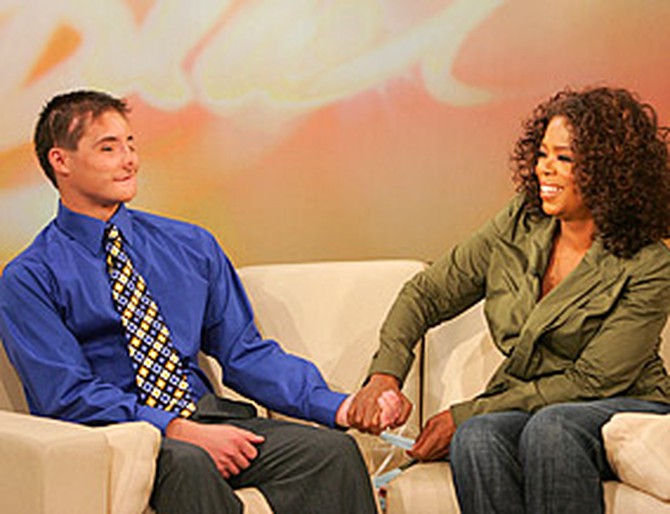
Because she lived in a different state, AJ's mother, Michelle, says she didn't really recognize the changes in her son's behavior. "His straight A's had gone to D's and F's within a matter of less than a semester," she says. "He also seemed to be agitated, angry for no apparent reason. He wasn't sleeping like normal people—eight hours a night. He was sleeping more like two to three hours a night."
AJ says he doesn't blame his parents for his fate. "Really, to be honest, there was nothing my mother or my father could do," he says. "My personality was self-destructive and no matter how great my life would have been or could have been, I still would have found fault in it."
Now, despite total blindness and more surgeries to come, AJ says he feels his life is full of joy. "Now that I see my blessings and I recognize that my family and friends are there for me, I have purpose," he says. "I found faith in God and I go out and I share my message with people. We all make mistakes, but if we learn from them, that's what life's all about. We have to crawl before we walk. I might have crawled a little bit further than other people but I'm able to walk now and share my story."
To people, especially teenagers, who think that suicide is the answer, AJ begs them to reconsider. "If we just step back and strive towards tomorrow, it will get better," he says. "And the day after that will be better than the day before. So never give up. You don't know how many people you're going to hurt by leaving them behind."
If you or someone you know suffers from depression, call the National Hopeline Network 1-800-442-HOPE (1-800-442-4673) or the National Suicide Prevention Lifeline 1-800-273-TALK (1-800-273-8255). It's toll free and open 24 hours a day, seven days a week.
AJ says he doesn't blame his parents for his fate. "Really, to be honest, there was nothing my mother or my father could do," he says. "My personality was self-destructive and no matter how great my life would have been or could have been, I still would have found fault in it."
Now, despite total blindness and more surgeries to come, AJ says he feels his life is full of joy. "Now that I see my blessings and I recognize that my family and friends are there for me, I have purpose," he says. "I found faith in God and I go out and I share my message with people. We all make mistakes, but if we learn from them, that's what life's all about. We have to crawl before we walk. I might have crawled a little bit further than other people but I'm able to walk now and share my story."
To people, especially teenagers, who think that suicide is the answer, AJ begs them to reconsider. "If we just step back and strive towards tomorrow, it will get better," he says. "And the day after that will be better than the day before. So never give up. You don't know how many people you're going to hurt by leaving them behind."
If you or someone you know suffers from depression, call the National Hopeline Network 1-800-442-HOPE (1-800-442-4673) or the National Suicide Prevention Lifeline 1-800-273-TALK (1-800-273-8255). It's toll free and open 24 hours a day, seven days a week.
Published 10/04/2006

